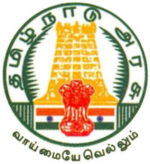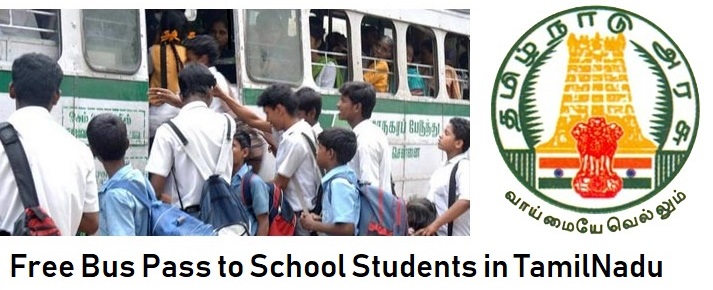Introduction
Tamil Nadu has established Early Intervention Centres across nearly all its districts to support children under six years old with intellectual disabilities and related developmental delays. These centres operate under the Department for the Welfare of Differently Abled Persons in collaboration with NGOs, public health agencies, and specialized institutions like the Madhuram Narayanan Centre. Consequently, Tamil Nadu ensures early diagnosis, therapy, and training so that young children build essential skills for daily living, communication, and social interaction. Lets study the Early Intervention Centre For The Children With Intellectually Disabled in detail.
Furthermore, this state initiative aligns with evidence showing that early treatment dramatically improves long-term outcomes. Therefore, families gain access to structured support before the critical neural development window closes. Importantly, Tamil Nadu also offers free transportation to these centres in government buses for families and escorts, making them accessible even in remote areas.
Children with developmental disabilities experience extensive health inequalities and face severe discrimination. The state of early child development should be improved on a global scale. Childhood experience during the early years have great influence on the entire life course. Early intervention should be provided to all children at risk for developmental disabilities. Strong nurturant environment should be provided during early child development to prevent developmental disabilities.
The main objective of these centres is to identify children with intellectual disability and children with allied disabilities at birth and to provide early intervention services.

Why Early Intervention for Intellectual Disabilities Matters
First, early childhood between 0–6 years remains the most receptive period for brain development. Thus, identifying delays early prevents missed opportunities for learning and adaptation. Moreover, children with intellectual disabilities often experience challenges in mobility, learning, and behaviour. Therefore, the government’s goal includes early stimulation, therapy, and education to mitigate these delays before they become long-term barriers.
In addition, the “Upanayan” programme, developed by the Madhuram Narayanan Centre, guides therapy and special education approaches used in these centres. By combining speech, occupational, and cognitive training, the programme helps build independence in activities of daily life. As a result, many children transition to mainstream education or special schooling with better readiness and confidence.
Centre Structure and Services
Each district centre serves approximately 50 children, and most districts including Thanjavur, Cuddalore, Tiruchy, and Chennai—host functioning centres. Dharmapuri remains the only exception thus far. These Early Intervention Centres provide the following:
- Screening and assessment using standard tools
- Therapies: speech, physiotherapy, occupational, behavior support
- Structured learning and mobility training under the Upanayan model
- Parental training: caregivers learn to extend therapy at home
- Nutrition support: coordinated via Anganwadi centres for malnutrition prevention
- Free transport on state buses to and from centres
These comprehensive services integrate medical intervention with psychosocial support. Moreover, educators undergo annual refresher training to maintain quality.
Who Qualifies and How to Enroll
Children aged below 6 years with intellectual disabilities or allied disorders may qualify. Parents should apply at their local District Differently Abled Welfare Office, submitting:
- Birth certificate
- Disability identity card issued by the Welfare Board
Once registered, families receive evaluation appointments. After initial diagnosis, the child attends the local Early Intervention Centre for ongoing training and periodic reassessment. Moreover, centres provide free once-a-day transport by government buses for child and escort.
Therefore, even families from distant villages can access quality early intervention services.
Impact and Outcomes
To date, centres support approximately 1,460 intellectually disabled children across the state. For children with cerebral palsy, centers in places like Tiruchy offer inter-disciplinary support led by physiotherapists, occupational therapists, speech therapists, and educators. These centres tailor infant stimulation for under-3s and therapy for children up to 6 years of age. Each centre typically supports around 50 children per batch.
Additionally, District Early Intervention Centre (DEIC) at Stanley Hospital in Chennai provides neuroscience-based therapy with sensory-rich indoor/outdoor design serving over 120 children daily. In 2025 alone, the DEIC delivered more than 8,500 therapy sessions, 77 surgeries, and supported 30 children in transitioning to regular schools. Importantly, these services remain completely free of charge.
Moreover, studies like those led by Amar Seva Sangam in Tirunelveli show that early intervention helps raise school enrollment from 69% to 85% among children with special needs. As a result, more children access education and lead meaningful lives.
Stakeholders and Delivery Partners
The scheme runs under the Department for the Welfare of Differently Abled Persons, while NGOs such as Madhuram Narayanan Centre (MNC) implement services in Chennai and other districts. MNC provides training, equipment, and monitoring support across centres. In addition, Amar Seva Sangam, Project ViThai, and other philanthropic organizations deliver mobile early intervention services in rural and tribal areas.
Further, Cross Disability Early Intervention Centres function as national models under DEPwD in NIEPMD Chennai and NIEPID Secunderabad. Tamil Nadu centres align with this national framework, ensuring quality and standardization.
Step-by-Step Guide: Enrolling Your Child in Early Intervention Centre For The Children With Intellectually Disabled
Here’s a simple guide for parents seeking early intervention support:
- Visit your District Differently Abled Welfare Officer or Child Development Centre
- Submit application form, birth certificate, and disability card
- Await initial screening and assessment at local centre
- Attend scheduled therapy and developmental sessions
- Learn home-based techniques from educators to reinforce gains
- Utilize free transport provided by government bus service
Early and consistent participation yields the best developmental outcomes.
Why This Early Intervention Centre For The Children With Intellectually Disabled Matters ?
The Early Intervention Centre initiative underlines Tamil Nadu’s commitment to building an inclusive society. Firstly, by acting early, the state prevents disabilities from growing into lifelong barriers. Secondly, it supports children’s integration into education and community. Thirdly, it alleviates financial and emotional strain for families. And further, by training parents and caregivers, it fosters sustainable development at home.
As a result, children with intellectual disabilities in Tamil Nadu gain a fair chance at learning life skills, entering school, and living with dignity. While the centres serve a limited number per district, their impact ripples across families and generations.
Where are these early intervention centres located ?
Early intervention centres for children with intellectual disabilities have been established in all the districts to benefit 50 children in each district, except Dharmapuri. These centres have been established through NGOs.
What is the need of early intervention centres ?
Early intervention centres can change a child’s developmental path and improve outcomes for children, families, and communities. Help your child, help your family. Families benefit from early intervention by being able to better meet their children’s needs from an early age and throughout their lives. It can improve the quality of children’s home lives and family relationships, increase educational attainment and support good mental health.
Who is in the need of early intervention ?
Children with intellectual disability and allied disabilities are in the need to pay attention so as to improve their quality of life.
Eligibility Criteria
Children with intellectual disability who is in the age group of below 6 Years are eligible for early invention.
Certificate to be enclosed with the application:
National identity card for differently abled and birth certificate are the documents which required to produce along with the application.
Officers to be contacted for Early Intervention Centre For The Children With Intellectually Disabled
To enroll the child in early intervention centre, one has to contact District Differently Abled Welfare Officer.
Final Thoughts about Early Intervention Centre For The Children With Intellectually Disabled
Tamil Nadu’s Early Intervention Centres for children with intellectual disabilities represent a vital step toward inclusive child development. By combining early screening, therapy, education, and caregiver training with free transport and nutrition support, the state ensures that vulnerable children receive essential care. While capacity expansion and rural outreach remain areas for growth, the scheme already exemplifies a robust, rights-based approach to disability rehabilitation.
For detailed information on district-wise centres, application forms, or eligibility criteria, visit the official Department for the Welfare of Differently Abled Persons, Tamil Nadu here: Tamil Nadu Welfare for Differently Abled Persons – Official Website

